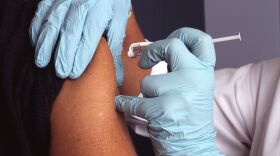Michigan has 14 times more hepatitis A cases than it did last year at this time, say epidemiologists with the state Department of Health and Human Services.
The outbreak, which is mainly in southeast Michigan, has sickened 457 people. Of those, 370 have been hospitalized and 18 have died.
The outbreak is complicated. There's no single source such as food contamination - and many groups of people are at risk, including homeless people, drug users, people who are neither, and now there are more cases among men who have sex with men.
Until October, only 10 men who have sex with men had contracted hep A. Then, in October, there was a sudden spike of 11 additional cases.
The state is urging doctors and hospitals to vaccinate at-risk patients, but officials say resistance is too frequently a problem.
Some hep A patients have left the hospital while still infectious. Some people living with a hep A patient have refused the vaccine and then gotten sick themselves, and some hep A patients have refused to disclose the names of family and close friends, which means health officials can't contact these individuals to inform them they should get the vaccine or early treatment.
The outbreak is still considered a regional epidemic, rather than statewide, although a small number of cases have occurred in Sanilac, Ingham, and Lapeer counties.
Officials are still trying to determine if the virus causing the outbreak is more aggressive than usual. Hep A is very easily spread via lax hygiene and close proximity.










